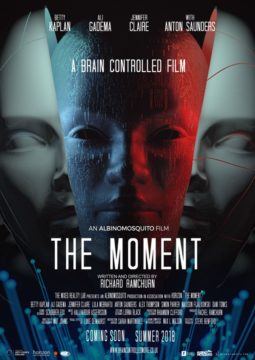by David Kordahl
 The evidence that mass media can cause physiological responses in humans is so evident in our everyday experience that it’s easy to ignore. Subliminal muzak makes our fingers tap lightly on our grocery carts. Billboards with sexy models flush our cheeks during our daily commutes. But not all such stimuli are subtle. For those media products whose main purpose is to cause a physiological response, genre labels serve as warnings—e.g., we label items that make us laugh as comedy, items that turn us on as pornography, or items that trigger our fight-or-flight response as horror. Modern people have complex attitudes toward media that invoke a physiological response, and practitioners of such genres alternatively experience intense celebration and intense censure.
The evidence that mass media can cause physiological responses in humans is so evident in our everyday experience that it’s easy to ignore. Subliminal muzak makes our fingers tap lightly on our grocery carts. Billboards with sexy models flush our cheeks during our daily commutes. But not all such stimuli are subtle. For those media products whose main purpose is to cause a physiological response, genre labels serve as warnings—e.g., we label items that make us laugh as comedy, items that turn us on as pornography, or items that trigger our fight-or-flight response as horror. Modern people have complex attitudes toward media that invoke a physiological response, and practitioners of such genres alternatively experience intense celebration and intense censure.
I’ve been thinking about this lately, because two weeks ago I attended an experimental film that flipped the script on this model of physiological causation. And when I write “experimental film,” I mean the phrase literally. The Moment is edited in real time by an algorithm, responding to the signals from an EEG strapped to someone’s head. In this way, The Moment is an intriguing curiosity: a mass media object whose output not only causes physiological responses, but which is caused by them.
Now, I was skeptical about this approach even before I arrived—but these skeptical thoughts can wait. What needs to be addressed first is the mode of arrival, which will be familiar to most readers, post-2020. Read more »
